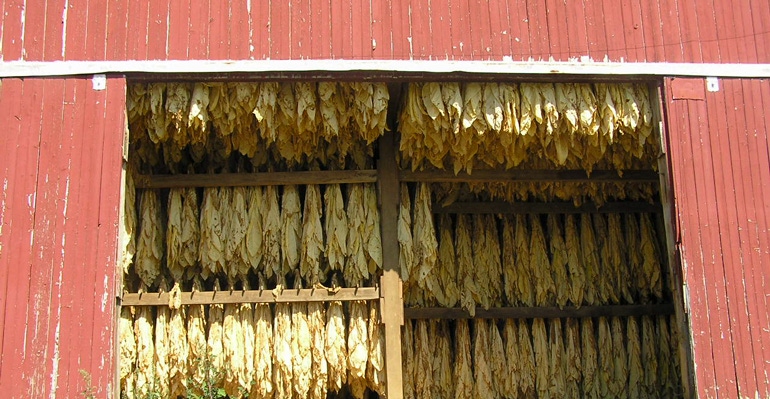
Most Lancaster County tobacco has been delivered to buyers after spending months curing in barns and greenhouses. But 2018 is a season many growers would like to forget.
“Worst year we ever had," says Don Welk of Strasburg, who’s been growing tobacco since 1982. “The weight was not there because of the damp, wet weather.”
While corn and soybeans suffered because of the weather, tobacco is especially sensitive to wet conditions. Growers count on blemish-free leaves to get paid higher prices, but last year’s weather put a lot of pressure on the crop.
The state’s farmers produced 17.4 million pounds of tobacco in 2018, the lowest since 2012 and much lower than the 19.12 million pounds that was projected, according to the Pennsylvania office of the National Agricultural Statistics Service.
Acres harvested was 7,800, the lowest since 2015. The average yield was 2,231 pounds per acre, the lowest since 2011.
The dominant types of tobacco are burley, Type 41 for cigar wrapper and Type 609 for cigarette filler.
Jeff Graybill, Lancaster County Extension educator, says tobacco leaves were thinner and there was a lot of mold growers had to deal with.
“Mold tobacco must generally be discarded, and this is after you have done a whole year’s worth of labor on it,” he says.
Welk, who is also a tobacco buyer for Lancaster Leaf Co., says he’s also heard of widespread mold on farms due to last year’s wet weather. Most tobacco deliveries for 2018 ended in early March, he says.
New options
Even with last year’s struggles, Lancaster County’s tobacco market is fairly healthy, Graybill says.
“Prices have been excellent the past few years with burley tobacco around $2 per pound and the PA wrapper tobacco (Type 41) around $4 per pound for the wrapper portion of the crop,” he says.
Welk has branched out into a different type of crop, trying his hand at some Connecticut broadleaf, also known as Type 51.
“It’s a broadleaf like 41-type. Used for cigar wrappers,” he says, adding that up to 800 acres of the crop will be grown this season. “It’s pretty much doubled from last year.”
Welk grew 3 acres of Connecticut-type and 8 acres of 41 in 2018. He says the average yield for Connecticut is 2,200 pounds per acre, a little less than the 2,400 pounds 41 brings, but it’s basically treated the same as 41.
“But it’s all about the leaf, getting paid on quality,” he says.
This will be the third year Welk is growing Connecticut broadleaf. He’s cut back on acreage of dark, air-cured tobacco. He says Connecticut handles easier and can be harvested earlier.
The price for pound, he says, can be high, fetching up to $5.80 a pound for wrapper and $1.95 for the rest of the leaf. By comparison, 41 wrappers can bring up to $5.50 a pound and about the same for the non-wrapper portion.
Connecticut-type has historically been grown in the Connecticut River Valley just north of Hartford, according to Ben Green, a manager at Lancaster Leaf.
Green says Connecticut requires more labor as it must be cut whole, but it basically cures the same as burley. In the fields, Green says you treat the crop as typical 41, spraying for disease and making sure it is clean, and free of holes and blemishes.
About the Author(s)
You May Also Like






